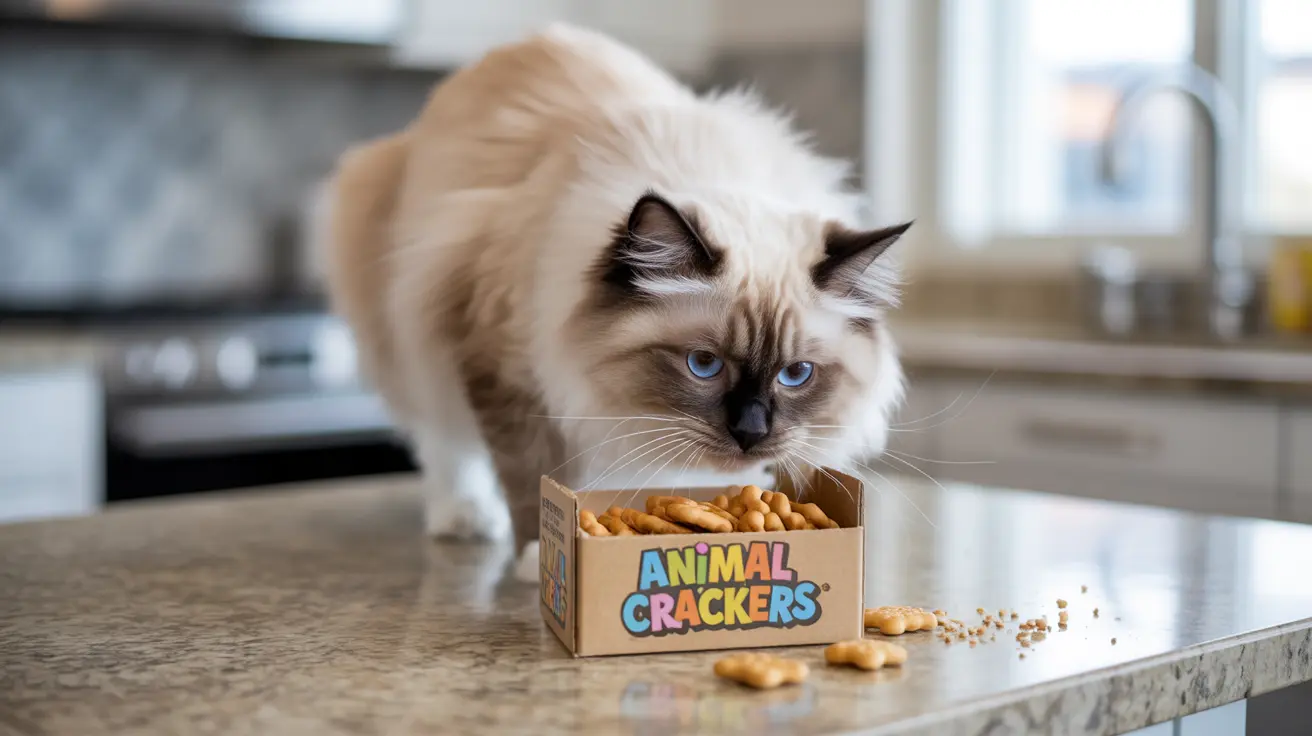Understanding Your Cat's Nutritional Needs
Cats are obligate carnivores, which means their bodies are designed to thrive on a meat-based diet. Unlike humans, cats require specific nutrients found primarily in animal tissues, including taurine, arachidonic acid, and certain B vitamins. Animal crackers, being primarily made of wheat flour and sugar, offer none of these essential nutrients.
The Composition of Animal Crackers
Animal crackers typically contain enriched flour, sugar, vegetable oil, salt, and various preservatives. While these ingredients aren't immediately toxic to cats, they provide no nutritional benefit and can potentially cause health issues when consumed regularly.
Potentially Harmful Ingredients
- Refined flour and sugar (empty calories)
- Salt (risk of sodium toxicity)
- Preservatives and artificial flavors
- Sometimes cocoa or chocolate (toxic to cats)
Health Risks Associated with Animal Crackers
Short-term Risks
Even small amounts of animal crackers can cause immediate digestive issues in cats, including:
- Upset stomach
- Vomiting
- Diarrhea
- Bloating and gas
Long-term Concerns
Regular consumption of animal crackers can lead to serious health problems:
- Obesity
- Diabetes
- Dental issues
- Nutritional deficiencies
Safe Treat Alternatives for Cats
Instead of animal crackers, consider these veterinarian-approved treats:
- Commercial cat treats formulated for feline nutrition
- Small pieces of cooked, plain chicken or turkey
- Freeze-dried meat treats
- Single-ingredient fish treats
Emergency Situations
If your cat has consumed a large quantity of animal crackers or shows signs of distress, monitor them for symptoms such as excessive thirst, lethargy, or persistent vomiting. Contact your veterinarian immediately if these symptoms occur.
Frequently Asked Questions
Can cats safely eat animal crackers, even in small amounts?
While a tiny piece occasionally won't likely cause immediate harm to a healthy cat, animal crackers are not recommended as they offer no nutritional value and could pose health risks.
What ingredients in animal crackers are harmful to cats?
The main concerning ingredients include refined flour, sugar, salt, preservatives, and artificial flavors. Some varieties may contain toxic ingredients like chocolate or artificial sweeteners.
What health risks do animal crackers pose to cats if fed regularly?
Regular consumption can lead to obesity, diabetes, dental problems, digestive issues, and nutritional deficiencies. The high carbohydrate content is particularly problematic for cats' digestive systems.
How can I tell if my cat has eaten too many animal crackers and needs veterinary care?
Watch for signs such as vomiting, diarrhea, lethargy, excessive thirst, or unusual behavior. If these symptoms appear, contact your veterinarian immediately.
What are better, safer treat alternatives for rewarding my cat instead of animal crackers?
Choose treats specifically formulated for cats, such as commercial cat treats, freeze-dried meat, or small pieces of cooked plain chicken. Always ensure treats make up no more than 10% of your cat's daily caloric intake.
Conclusion
While animal crackers aren't immediately toxic to cats in very small amounts, they're far from an ideal treat choice. Instead of sharing these human snacks, opt for species-appropriate treats that support your cat's health and nutritional needs. Always consult with your veterinarian about the best treat options for your specific cat's needs and health conditions.






